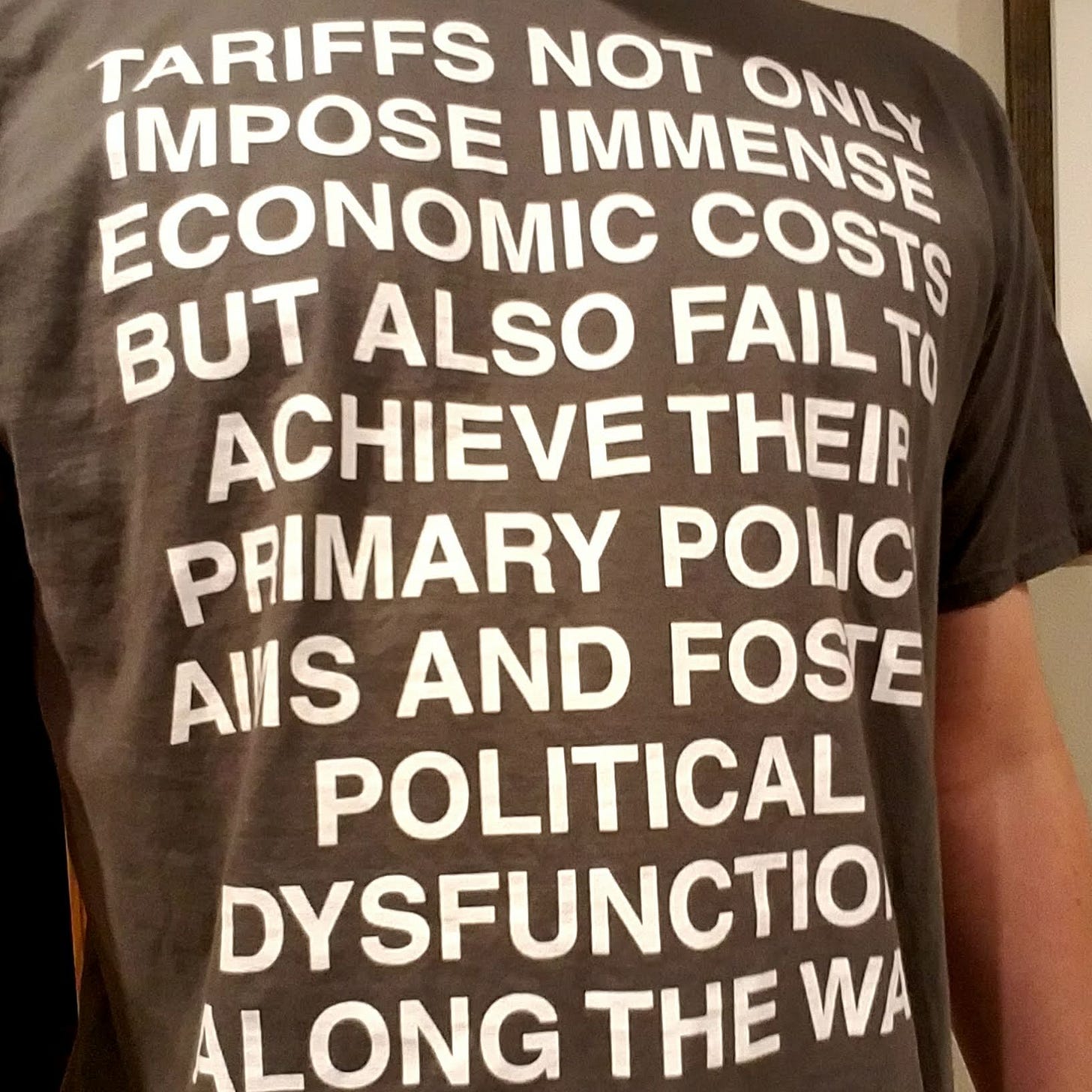Convicted for a t-shirt
On free-speech evangelism, movie studios, and why the conviction of a Hong Kong t-shirt-wearer matters far outside China's realm
From time to time, an American might be asked to observe a dress code at a public event, or a student may be asked to reverse a t-shirt with a provocative slogan. It's fairly uncommon; we tend to be free-speech zealots in this country, and the occasional invocation of restrictions on time, manner, or place tend to stand out as the exceptions that prove the rule. By and large, words are welcome to do combat so that fists do not.
■ Such is not the case everywhere. In Hong Kong, a 27-year-old man has just pleaded guilty to a charge of sedition merely for wearing a t-shirt in public. The words "Liberate Hong Kong" were just too much for the Chinese Communist Party (and its local quasi-apparatchiks) to bear. Hong Kong, of course, has been in a free-speech freefall since the imposition of a draconian law restricting speech in 2020.
■ Americans would be merely interested onlookers -- hopefully, sympathetic to the cause of freedom -- if it weren't for the growing projection of the Chinese regime's anti-speech attitude far beyond the country's own borders. They've threatened American movie studios, created human blockades in Australia, and opened secret-police bureaus in free countries to monitor and intimidate dissidents (or perhaps worse).
■ These offenses make Chinese laws on speech into significant global issues, rather than mere domestic ones. The dismantling of the "second" system which Hong Kong had been promised is a reminder to the world that if there's one thing an authoritarian regime cannot stand, it is the liberty of individual thought. Today, it's a personal crisis for one dissident. But in a world where pressure against activists and political figures can take on an instant global footprint, there's no need to wait until tomorrow to take it seriously.



